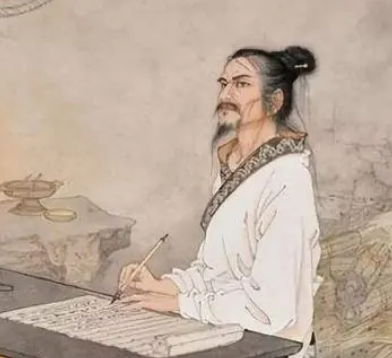During the Ming Dynasty, although Zheng He led a fleet of ships to carry out long-distance voyages decades earlier than the beginning of the Age of Discovery in the West, the Ming Dynasty failed to discover the American continent before the West and ultimately missed the opportunity of the entire Age of Discovery.

The reason for this difference may lie in the fundamental difference in the purpose of navigation between the two sides.
During Zheng He's voyages to the West, the emperor of the Ming Dynasty was the famous Ming Chengzu Zhu Di. Although Zhu Di was one of the rare wise emperors in history, he also had a tendency to seek glory. He hoped to demonstrate the prosperity and strength of the Ming Dynasty to the outside world through navigation, so he dispatched Zheng He to conduct long-distance voyages.
In 1405 AD, the third year of Zhu Di's reign, he ordered Zheng He to lead a fleet of 240 ships and more than 27,000 people to traverse the Indian Ocean and the Western Pacific, visiting more than 30 countries and regions, creating a peak in the history of ancient navigation.
In terms of the purpose of navigation, Zheng He was completely different from later European navigators.
The main purpose of Ming Dynasty navigation was to promote the national prestige of the Ming Dynasty and make overseas countries feel the prosperity and strength of the Ming Dynasty. In this process, political purposes were primary, while economic purposes were secondary. During Zheng He's voyages, although the goal of displaying China's national prestige was achieved, making the prestige of the Ming Dynasty spread throughout the oceans, there was basically no economic benefit. At the same time, maintaining such a large fleet was extremely expensive. Maintaining such a fleet year-round placed a huge burden on the Ming Dynasty's finances, and the fleet itself could not bring much economic benefit to the Ming Dynasty. Therefore, after Zhu Di's death, during the Ming Xuanzong period, the Ming Dynasty decided to abolish the military power and completely disbanded this large fleet.
In contrast, European navigators mostly sailed for economic purposes. Due to constant wars in Central Asia, the Silk Road was completely interrupted. In order to obtain spices and various resources from the East, Europe had to take the initiative to go to sea and try to reach the East through sea voyages. In this process, many navigators began to carry out adventurous voyages and entered unknown waters in pursuit of wealth, which led to the subsequent great geographical discoveries.
It was for such reasons that the Western navigators, who were later than Zheng He in time and whose fleets were also smaller in overall size, achieved historically significant geographical discoveries and thus kicked off the prelude to the Age of Discovery.
Apart from economic pressure, cultural pressure was also one of the important reasons for the eventual termination of Zheng He's fleet.
Overall, due to differences in the purpose of navigation, economic pressure, and cultural concepts, Zheng He's fleet failed to achieve significant geographical discoveries and economic changes like Western navigators, missing the opportunity to become the global maritime hegemon.
Disclaimer: The above content is sourced from the internet and the copyright belongs to the original author. If there is any infringement of your original copyright, please inform us and we will delete the relevant content as soon as possible.































